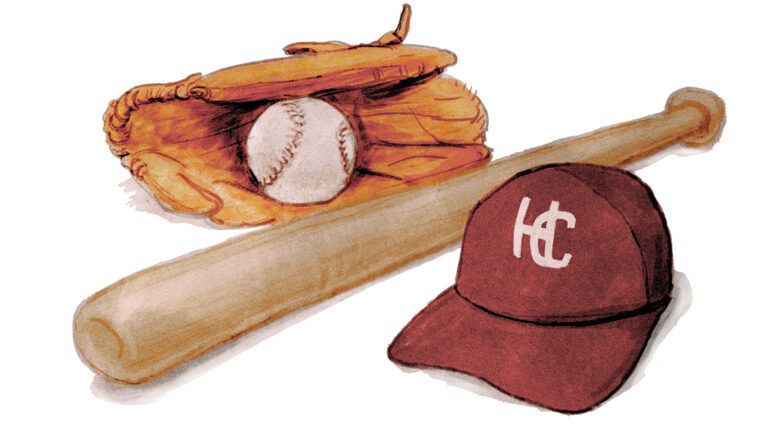Although it’s reductive, I categorize most families as either “sweet” or “spicy.” In general, a family trends toward one or the other.
One guess which way the Hatmakers lean.
We are spicy people. We love obnoxious humor and sarcasm and are very, very loud. The lot of us suffers from Enormous Feelings, which makes us a passionate, emotional bunch. Our permanent default setting is exclamation marks!! We don’t really do “gentle.” We don’t actually know what that means.
So anytime I’m around a sweet family, I have a crisis. It simmers until a comment from one of their children to another–“Sister? Would you like the last brownie? You take it since you did all my chores as a surprise for my half birthday…”–launches a watershed moment.
Nothing makes me diagnose my family as “catastrophic” quicker than another family behaving–a terrible comparison game that isn’t even fair, as I’m not privy to their atmosphere beyond that one hour. Maybe that darling brownie-deferring sister gave the other a roundhouse kick to the temple the next day for calling her a turd burger. We don’t know these things, and it’s easy to reduce another family to a prototype to compare against our undomesticated family. The result is despair, then certainty that our children are ruined.
Is there any worry like parent worry? We are responsible for whole human lives here. This is it. This is their one childhood leading to one adulthood. They absorb all the hours in this home, emulating what they’ve seen, GOD HELP US. Every mother I know worries she isn’t doing this right, failing in countless ways, seen and unseen. Our family faults seem so egregious, omissions and breakdowns and missteps that constitute a complete and total disaster.
I heard recently, “If you are worried about being a bad parent, you are probably a good one.”
I wanted to believe this so badly. Am I? Am I a good mom? Because I mostly feel like I’m spitting into the wind here. Then something happened. I jumped outside my mind where the crazy lives and watched myself talking to my kids. I was so nice sometimes! I said sweet and precious things here and there! There were so many I love yous and You are very smarts and attentive Mmhmmms and Sounds awesomes and Great job on thats laced through. I watched myself be a good parent and realized I am my own worst critic and sometimes even a liar, convincing myself that nothing good is happening and it’s all my fault, or maybe [my husband] Brandon’s fault, and the kids are horrid and we are a disaster.
I should ignore myself more often.
Why do we exaggerate our failures and ignore our successes? I would never overvalue another mother’s lows and neglect her triumphs, so why would I do that to myself? Why do any of us? We observe other parents’ strengths with 20/20 vision while our strengths are blurred. I declare your goodness as easily as I affirm my wretchedness; they are inversely proportional. I am conditioned to minimize your humanity and overemphasize mine.
Whether you are a sweet mama imagining how the spicy mamas have all the fun (not true: we’re mostly breaking up fights), or a spicy mama assuming the sweet mamas have all the tenderness (they don’t: they mostly, um, I’m not actually sure, I’ve never been in a sweet family): if you are worried about being a bad parent, you are probably a good one.
Some of the good is obvious, the stuff we readily notice in others–the loving words, the endless attention, the eye contact, the praise. We read to our kids and tuck them in with kisses and use affirming parenting language and attend all the games/recitals/tournaments/programs. We braid hair and tie ribbons and apply Band-Aids and pretend our kids’ art is pretty. We do all that, and it is good, and it counts.
Some of the good is less obvious, the stuff that also happens in every home–the apologies, the conflict resolution, the tough love, the boundaries, the making up, the hard lessons. We are molding failure into character, both our kids’ and ours. Every parent blows it. Every kid comes unhinged. Every family goes off the rails. That doesn’t mean we are ruined; it means we are ordinary. Course correction is standard. These moments often feel bad because they started bad, but they are actually good, and they count too.
This is my point: You are doing a better job than you think. Self-criticism sometimes improves best practices, but it can also lie to you and probably has. You may need to ignore your mind and watch yourself awhile–not just detecting the sharp moments but the soft ones, for I assure you they are there. If you would tell a friend having a bad mom day, “
“It’s okay! Your kids know you love them. Everyone loses it sometimes. Parenting is hard. Tomorrow is a new day…,” then you should extend that same compassion to yourself.
You are doing a wonderful job. Parenting is mind-numbingly hard and no one is perfect at it and we’ll all jack a thousand parts, yet somehow, against all odds, it will be enough.
This is an excerpt from Jen Hatmaker’s new book For the Love (Nelson Books, 2015).






